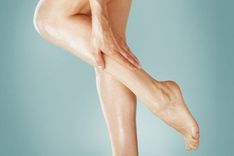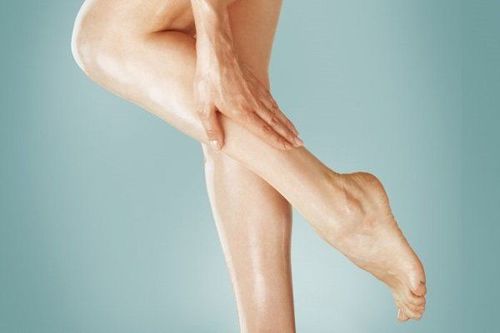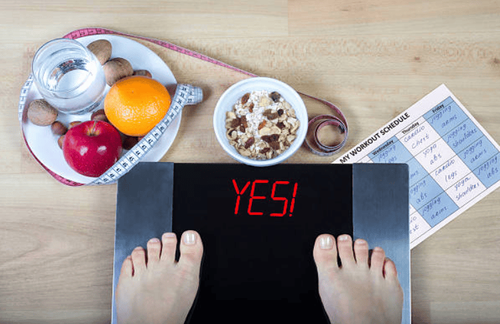Running is often seen as a means to burn body calories and maintain weight. However, running for one hour can be different for each person due to their individual fitness and endurance levels. So how many calories can you burn by running for 1 hour? The following information will help clarify this.
1. Determining the Calories Burned When Running
There are different ways to estimate how many calories you burn while running. Many runners use the 100 calories-per-mile rule. Although this is the fastest and simplest way to estimate your calorie burn, it’s not likely the most accurate, as it doesn’t account for important variables.
As a very general and simple rule, an average-sized runner burns about 100 calories per mile.
To get a better estimate of how many calories you burn while running, you can use a physical activity calculator. You will need your current weight, running speed, and running time. These numbers help personalize the estimate to get a more accurate figure.
2. Tools to Determine Calorie Burn
Different technological tools can help estimate the number of calories burned while running.
2.1. Apps
Some smartphone apps let you track your calories. Running apps like Runkeeper and Strava provide calorie data for your workouts. However, the numbers provided are only estimates. To get these numbers, you should ensure the app is used throughout your workout, meaning you carry your phone with you while running.
2.2. Trackers
Health trackers from brands like Fitbit, Polar, or Garmin have features that allow you to track your calorie burn. Settings on most of these devices can be toggled on or off so you can monitor how many calories you’re burning as you run.
Real-time updates on your smartwatch or app can motivate you to run a bit farther if you have a calorie goal.
2.3. Treadmill
Treadmill calorie counters often provide a number of calories burned at the end (or during) your workout. These numbers are only estimates and are unlikely to be accurate unless you input your weight and other relevant data before starting. Treadmills also tend to overestimate the number of calories burned during a run.

3. Factors That Affect How Many Calories You Burn When Running
Remember, all those numbers are just estimates. Anything you do to increase workload or force applied over distance will increase the oxygen you use and the calories you burn.
3.1. Your Body Weight
For starters, force is related to your body weight. The heavier you are, the more work you have to do. That’s why a heavier person will burn more calories than a lighter person, even if they run at the same speed and for the same time. For example, a 140-pound person might burn 13.2 calories per minute while running, a 160-pound person 15.1, and a 180-pound person 17. If you specifically want to increase calorie burn, consider running with a weighted vest.
Your Speed and Intensity: Increasing your speed and intensity also requires more oxygen, boosting your calorie burn. Compare a 10-minute-mile pace, which burns about 624 calories per hour, to an 8-minute-mile pace, which burns about 751 calories per hour. It’s not always easy to shave minutes off your pace, but adding intervals can help you reap the calorie rewards at faster speeds. However, you don’t need to run fast to burn tons of calories. Instead, you can always run longer; running for 60 minutes at a moderate pace can burn the same number of calories as running 30 minutes at a faster pace.
Add an Incline: Another way to increase calorie burn without changing your speed is to run hills or use the incline feature on a treadmill. Your heart works harder to handle these inclines at the same speed as flat ground, resulting in more calories burned.
4. How Many Calories Do You Burn Running for One Hour?
A 150-pound person running at a 10-minute-mile pace for 60 minutes burns about 700 calories, while a 200-pound person running the same time and speed burns about 933 calories.
On average, you’ll burn about 80 to 140 calories per mile. Running for 30 minutes burns about 280 to 520 calories, depending on your weight and speed.
Here’s how the calorie burn looks if you extend your run to 60 minutes at 6 miles per hour, depending on weight:
- 130 lbs: 607 calories
- 150 lbs: 700 calories
- 170 lbs: 793 calories
- 190 lbs: 887 calories
- 210 lbs: 980 calories
- 230 lbs: 1074 calories
The calories burned running depend on your weight, how long you run, and to a lesser degree, your speed. Use a calculator for a customized calculation.
If you want to lose weight, running is a great way to cut calories. Combine extra exercise with a reasonable diet to create a calorie deficit and lose weight. If you’re having trouble losing weight, consider how many calories you should eat per day to reach your goal.

5. Other Benefits of Running
Forget about the calories for a second. Running has many benefits, from reducing the risk of death from cardiovascular disease and strengthening your joints to preventing depression and improving memory.
When you run, it’s not just about burning calories; it’s also about building strength, burning fat and carbohydrates, and increasing the amount of oxygen you can consume and use efficiently. And you can’t accomplish all of that by always running at top speed. Many runners try to run fast all the time, whether due to training constraints, limited time, or just wanting to burn as many calories as possible. But variety is the key to getting all the running benefits.
An easy run won’t burn as many calories, but it’s great for recovery and stress reduction. Running slowly and longer helps muscles extract more oxygen and makes mitochondria work more efficiently in your muscles.
Faster running, such as tempo runs and interval workouts, conditions your heart and lungs to deliver more oxygen to your muscles, allowing you to run faster and hold that pace for longer.
If you don’t incorporate all these workouts into a training plan, you’ll eventually plateau in calorie burn and performance. The more efficient you become as a runner, the more efficient your metabolism becomes. To keep improving, you need to vary the incline, intensity, and speed at which you run.
To arrange an appointment, please call HOTLINE or make your reservation directly HERE. You may also download the MyVinmec app to schedule appointments faster and manage your reservations more conveniently.













